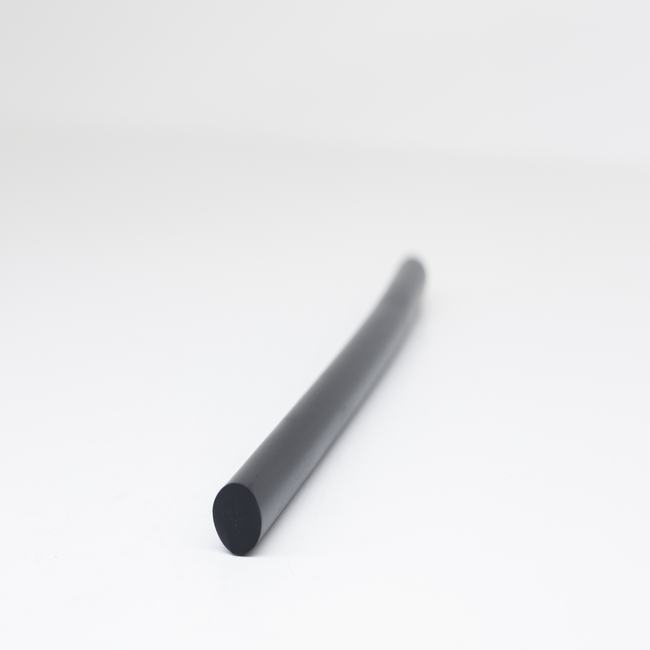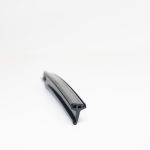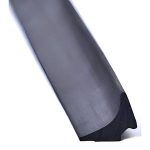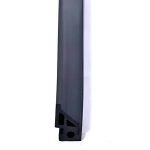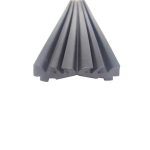Industrial seals, also referred to as industrial gaskets or mechanical seals, are critical components used in various industrial applications to prevent leaks, protect equipment, and ensure the efficient operation of machinery. These seals are designed to create a barrier between two or more mechanical components, preventing the escape of fluids, gases, or particles. Industrial seals are widely used in industries such as manufacturing, petrochemical, automotive, aerospace, and many others to maintain the integrity of systems, enhance safety, and reduce environmental impact.
Here is an in-depth description of industrial seals, including their types, applications, and the benefits they provide:
1. Types of Industrial Seals:
- O-Rings: These are circular seals typically made of rubber or elastomeric materials, and they are used to create a tight, static or dynamic seal between two surfaces. O-rings are versatile and used in a wide range of applications, from hydraulic systems to automotive engines.
- Gaskets: Gaskets are flat seals, often made from materials like rubber, cork, or metal, used to prevent leaks between two stationary parts, like flanges or covers. They come in various shapes and sizes to accommodate specific applications.
- Mechanical Seals: Mechanical seals are used to prevent leakage in rotating equipment, such as pumps, compressors, and agitators. They consist of two parts, one stationary and one rotating, which press against each other to form a dynamic seal.
- Lip Seals: Lip seals, also known as oil seals, are used to prevent the escape of lubricants and the ingress of contaminants in rotating shafts, such as those in engines, gearboxes, and wheel hubs.
- Diaphragm Seals: Diaphragm seals are employed to separate pressure-measuring instruments from the process fluids they are monitoring, ensuring the instruments remain clean and functional.
2. Applications:
- Pipelines: In the oil and gas industry, industrial seals are used in pipeline systems to prevent leaks and maintain the integrity of the transport of fluids over long distances.
- Manufacturing Machinery: In manufacturing, seals are crucial in machinery such as injection molding equipment, hydraulic presses, and conveyors to ensure the smooth operation of processes.
- Automotive: Industrial seals are found in various parts of vehicles, including engines, transmissions, and braking systems, to maintain fluid containment and prevent leaks.
- Aerospace: The aerospace industry relies on industrial seals in aircraft engines, landing gear systems, and hydraulic systems to ensure safety and reliability.
- Chemical Processing: In chemical plants, industrial seals are used in pumps, valves, and reactors to prevent the escape of hazardous chemicals and maintain the safety of the process.
- Pharmaceuticals: The pharmaceutical industry uses seals to maintain the integrity and sterility of processes and equipment in the production of medicines.
- Food and Beverage: Seals are essential in the food and beverage industry for maintaining hygienic conditions and preventing contamination in equipment used for processing and packaging.
3. Benefits of Industrial Seals:
- Leak Prevention: The primary function of industrial seals is to prevent leaks and ensure the containment of fluids and gases, reducing the risk of environmental contamination, equipment damage, and safety hazards.
- Equipment Protection: Seals protect machinery and components from wear and damage by preventing the escape of lubricants, abrasives, or other potentially harmful substances.
- Safety: In industries with hazardous materials or high-pressure systems, industrial seals play a crucial role in maintaining the safety of both the environment and personnel.
- Efficiency: Properly designed and installed seals help improve the efficiency and performance of industrial equipment, reducing energy consumption and operational costs.
- Regulatory Compliance: Many industries have strict regulations regarding emissions and safety. Industrial seals help companies meet these requirements and avoid potential legal issues.
- Longevity: By preventing leaks and reducing wear, industrial seals contribute to the longevity of equipment and reduce the need for frequent maintenance and replacement.
In conclusion, industrial seals are indispensable components in various industries, serving to prevent leaks, ensure safety, and enhance the efficiency of equipment and systems. The wide range of seal types and materials allows for their adaptability to specific industrial applications, and their benefits are far-reaching in terms of environmental protection, equipment reliability, and overall operational effectiveness.
